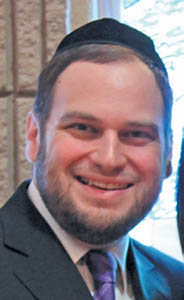

A couple of years ago we decided to make our first garden. I had seen other people make gardens and was told it was relatively simple. We identified a rectangular space in our backyard and got to work. After clearing the area of debris and rocks, we put down the top soil and put in the seeds. We were told that cucumbers and tomatoes were the easiest and most likely to grow, so we began the journey of becoming gardeners. Each day one of the kids had the job of watering the garden, and every morning and afternoon one of them would check and see if there was any movement on our little experiment. It wasn’t long before we started to see our cucumbers and tomatoes starting to take form. I found it to be an incredible exercise in instilling a sense of Hashem’s power in my children. It took effort every day, watering regularly as well as getting enough sunlight to ensure that our garden would grow. As time passed we started to wonder when the perfect time would be to take our vegetables to our table and begin the second round. It was one Shabbos that, after looking at the beautiful, plentiful cucumbers and tomatoes, we decided Sunday would be the big day. When Sunday morning came and we were excited to harvest and taste the fruits of our labor, we were shocked by what we found. Apparently there was one little piece of advice we were not given about constructing a garden. Every garden needs to have a fence. The rabbits had eaten all of our cucumbers and tomatoes. While we were very disappointed, we had learned a good lesson. Even though we never really tried again, a separate lesson was derived that I thought was of great value. We had all experienced a great sense of accomplishment and productivity that had the ability to set an example for other areas of our lives.
In Parshat Emor, the Torah instructs us that when the farmer harvests his land he should be mindful of two critical mitzvot. The first is the mitzvah of peah, where the corner of the field is not harvested but instead is left for the poor. The second mitzvah is called leket, where the gleanings that remain at the time of the harvest be left for the poor.
The farmer is reminded that even though he has been blessed by Hashem with the produce of his field, he has to keep in mind those who are less fortunate. Rav Aharon Bakst, zt”l, asked why Hashem insisted on the halacha being observed in this fashion as opposed to the farmer giving the poor a few loaves of bread after his production is complete. Why make the poor work to produce the bread as opposed to the farmer caring for the poor with the finished product? Rav Bakst answers that one cannot compare the feeling of accomplishment one feels when producing something themselves as opposed to just being given something. The poor person is already feeling down about their plight. They feel almost degraded that they have to rely on others. By giving them freshly baked bread we may nourish them physically but not emotionally. If the farmer provides the opportunity for the poor to collect the grain themselves they are engaged in the process of production. It is through this process that they may begin to feel differently about themselves—by feeling a sense of accomplishment through the production of bread.
Many of us tend to feel downtrodden when we are not accomplishing or being productive. It is important when we hit those bumps in the road of life to become productive and enliven our spirits. There are seeds within each of us that are looking to be cultivated and grown. Though we may not physically toil in the soil, our minds and hearts are certain to come to life when we strive to accomplish. As we come closer to Shavuot, may we become reenergized in watering the seeds of Torah that have been planted within us and thereby create an enjoyable and delectable garden of accomplishment in learning and mitzvah observance.
By Rabbi Eliezer Zwickler
Rabbi Eliezer Zwickler is rabbi of Congregation AABJ&D in West Orange, New Jersey, and is a licensed clinical social worker in private practice. Rabbi Zwickler can be reached at [email protected].









